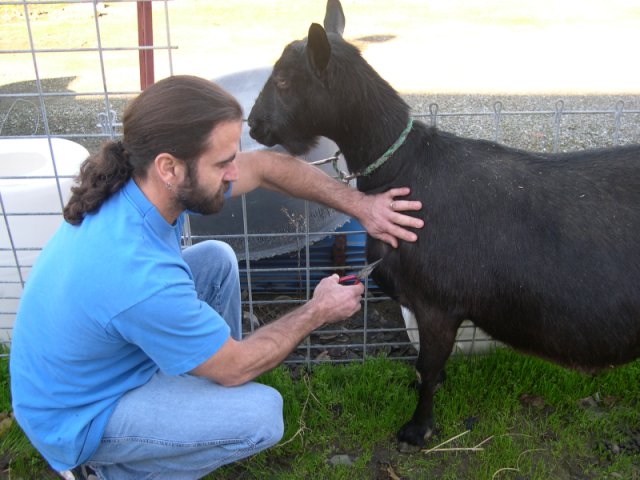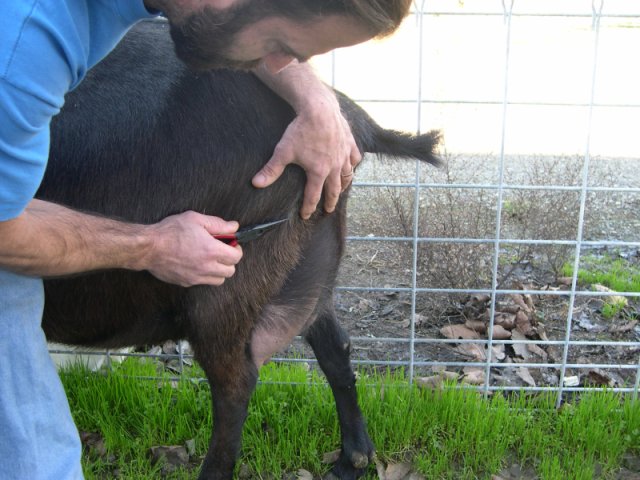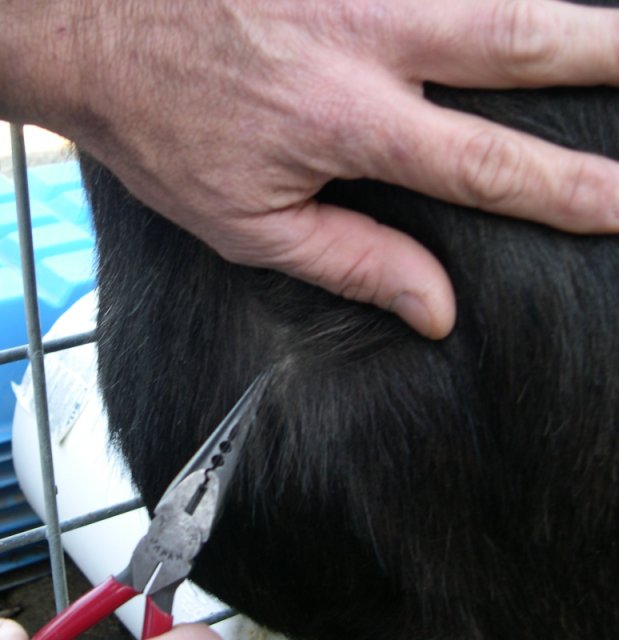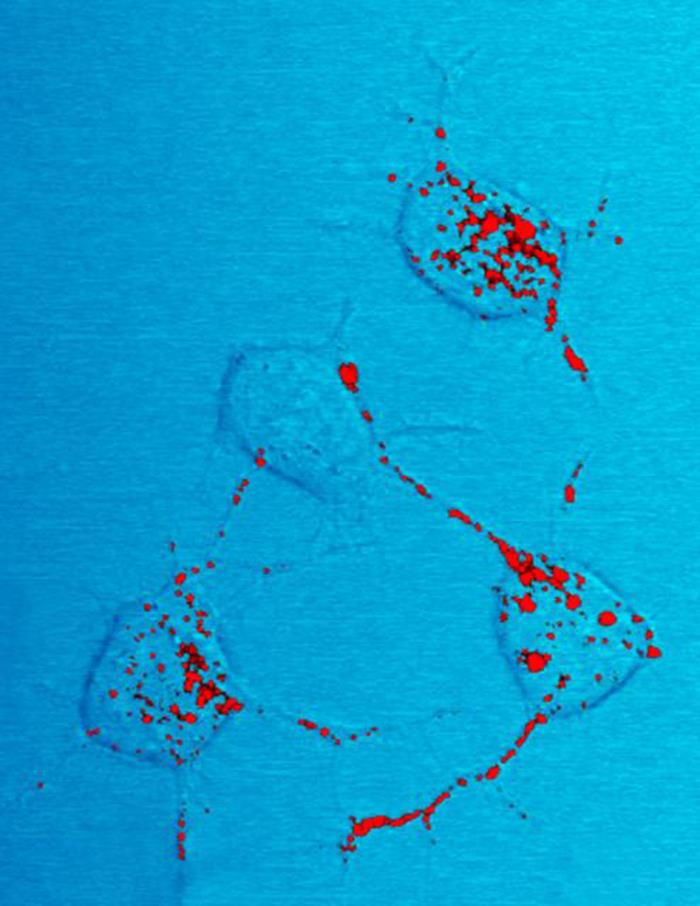Quick Summary
Click here for Price and Turnaround Time
Phenotype: Goats with certain natural mutations in the prion protein gene have increased resistance to classical scrapie compared to goats lacking the mutations.
Alleles:
N = asparagine at position 146
S = serine at position 146 (confers genetic resistance against classical scrapie)
D = aspartic acid at position 146 (confers genetic resistance against classical scrapie)
Q = glutamine at position 222
K = lysine at position 222 (confers genetic resistance against classical scrapie)
Breeds appropriate for testing: All breeds
Explanation of Results:
- Goats with N/N, Q/Q genotype have no copies of the protective allele and are susceptible to classical scrapie.
- Goats with N/N, Q/K genotype have one copy of the K222 protective allele (lysine at position 222) and have increased resistance to classical scrapie.
- Goats with N/N, K/K genotype have two copies of the K222 protective allele (lysine at position 222) and have increased resistance to classical scrapie.
- Goats with N/S, Q/Q genotype have one copy of the S146 protective allele (serine at position 146) and have increased resistance to classical scrapie.
- Goats with S/S, Q/Q genotype have two copies of the S146 protective allele (serine at position 146) and have increased resistance to classical scrapie.
- Goats with N/S, Q/K genotype have one copy of both the S146 protective allele (serine at position 146) and K222 protective allele (lysine at position 222) and have increased resistance to classical scrapie.
- Goats with N/D, Q/Q genotype have one copy of the D146 protective allele (aspartic acid at position 146) and have increased resistance to classical scrapie.
- Goats with D/D, Q/Q genotype have two copies of the D146 protective allele (aspartic acid at position 146) and have increased resistance to classical scrapie.
- Goats with N/D, Q/K genotype have one copy of both the D146 protective allele (aspartic acid at position 146) and K222 protective allele (lysine at position 222) and have increased resistance to classical scrapie.
- Goats with D/S, Q/Q genotype have one copy of the D146 protective allele (aspartic acid at position 146) and one copy of the S146 protective allele (serine at position 146) and have increased resistance to classical scrapie.
Sample Collection
Most goat DNA tests offered by the VGL are carried out using 20-40 hairs with roots.
Hair root from coarse, longer hair often found over withers, chest, rump, tail, back of hind leg, poll, or fetlock is the preferred sample type for goats.
Instructions
1. Clean (use comb if possible) by removing all loose hair and foreign matter.
2. Use fingers or pliers to grasp approximately 8-10 hairs close to the skin and pull. Pull (do NOT cut) hair strands. Examine the end of hair strands for presence of root bulbs. Hair roots are necessary for DNA testing. If the majority of hair strands lack the root bulbs, discard hair and start again.
3. Repeat until you have approximately 20-40 hairs with root follicles attached.
4. Place the 20-40 hairs with root follicles attached in the envelope and seal with the animal’s ID written on the envelope.
5. Repeat steps 1-4 for each additional animal being sampled.
Note:
- Hair should be dry.
- If hair has excess dirt and debris, please brush out if possible before pulling hairs for sample.
- Do not cut the hair! The roots contain the DNA for testing.
- When sampling several animals in the same session, make sure that there are no hair strands in your hands to reduce the possibility of sample contamination. Clean hands and/or pliers if possible.
Examples
Sampling goat chest hair:

Sampling goat rump hair:

Sampling technique using pliers:


Scrapie is a fatal, infectious neurodegenerative disease that affects sheep and goats. The disease results from infection with pathogenic agents known as “prions,” which change the normal prion protein (PrPC) to the improperly folded, disease-associated form (PrPSc). The abnormal PrPSc is resistant to the protein turnover process and forms deposits in the central nervous system and some peripheral tissues that lead to progressive neurodegeneration. Goat scrapie is similar to a group of prion diseases that includes Creutzfeldt-Jakob disease in humans, bovine spongiform encephalopathy (BSE) in cattle, sheep scrapie and chronic wasting disease in cervids. The disease impacts animal health and welfare, animal movement, and trade.
Natural mutations (also called alleles or variants) in the prion protein gene (PRNP) of sheep and goats have been identified which confer susceptibility or resistance to scrapie. In the goat, S146 and K222 alleles have been confirmed, experimentally and in the field, to confer genetic resistance against classical scrapie. Allele D146 has also been found to confer protection against classical scrapie in goats of Cyprus. These alleles are named for the amino acid changes in the PRNP protein. S146 indicates serine (S) and D146 indicates aspartic acid (D) at position 146 instead of normal asparagine (N) and K222 indicates lysine (K) instead of normal glutamine (Q) at position 222. Serine-146 or Lysine-222 forms of PrPC are more resistant to conversion to the abnormal PrPSc.
This test for classical scrapie in goats screens for presence/absence of the protective alleles S146, D146, and K222. Information from the test can be used by breeders to select breeding stock to increase frequency of beneficial alleles in their herds. The latest research shows that even a single copy of S146, D146 or K222 alleles confers resistance to classical scrapie beyond the productive lifetimes of goats. Breeding for resistance is an effective means to control classical scrapie at the herd and population levels. This test is applicable to goats of all types and breeds, including those raised in the U.S.
